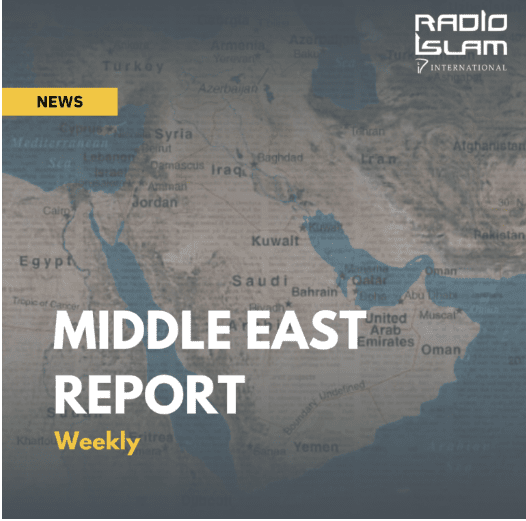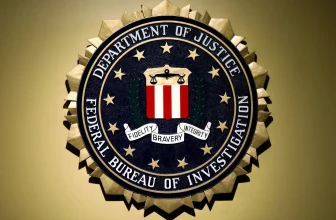
James discusses this week’s latest Middle East
developments on Radio Islam.
To listen to the podcast, go to https://jamesmdorsey.substack.com/p/the-middle-east-report-c36
Transcript
[Anchor] Good morning, James. Always a
pleasure to talk to you. Good morning.
[James M. Dorsey] It’s always wonderful
to be with you.
[Anchor] Israel’s US support base is
narrowing, coming at Israel from different directions. You’ve got US President
Donald Trump, then you’ve got the increasingly critical evangelicals, which
until recently was a rock-solid Israeli support base. You’ve got the influential Make America Great
Again torchbearers, who are all chipping away at Israel’s standing.
[James M. Dorsey]
Indeed, Trump signalled his changing attitude
towards Israel with his intended sale to of F-35 fighter jets, the world’s most
advanced fighter. The sale, and Mr. Trump’s remarks when announcing it with
Saudi Crown Prince Mohammed bin Salman at his side, puts the kingdom on par
with Israel.
Potentially, the sale could alter the military
balance in the Middle East and violate US law that obliges the United States to
ensure that Israel maintains a qualitative military edge in the region.
At the same time, Trump’s move came also as
Israel loses support among young American evangelicals, a traditionally
pro-Israel support base, and criticism of Israel mounting among the President’s
Make America Great Again supporters.
[Anchor] American-born Rabbi Mir Kahani
is back with a vengeance. His racist Jewish supremacist ideology looms large 35
years after he was assassinated in New York and 41 years after Israel banned
his Kash party as a terrorist organisation. Tell us about that, James.
[James M. Dorsey] The pervasive
influence of Kahani’s ideology is evident across Israeli politics and society,
as well as in segments of the country’s military. His disciples, including
National Security Minister Itamar Ben-Gvir and Heritage Minister Amichai
Ben-Eliyahu, occupy prominent government positions and propagate his precepts.
Members of Prime Minister Benjamin Netanyahu’s Likud party are calling for the
rehabilitation of Kahani.
Kahani’s revival is hardly a uniquely Israeli
phenomenon. It is one of the most militant, supremacist, and racist fixtures of
the worldwide mainstreaming of far-right racial, ethnic, and religious
prejudice and bigotry, including anti-Semitism and Islamophobia.
[Anchor] So coming back to Mohammed bin
Salman, right, in an increasingly multilateral world, the Saudi Crown Prince
Washington message was that the kingdom is claiming what it feels is its
rightful place at the table as a geopolitical and geoeconomic powerhouse.
[James M. Dorsey] Absolutely. When the
Crown Prince visited Washington this week, he shifted multiple paradigms. In an
increasing multilateral world, bin Salman suggested indeed rather than word
that the kingdom and other Gulf states are claiming their rightful place at the
table as geopolitical and geoeconomic powerhouses.
Trump catered to bin Salman’s ambitions by
defining the U.S.-Saudi relationship as one of the most consequential in the
world. Saudi Arabia brings more than geography, money, and Mecca to the table.
It is rich in globally sought-after minerals that allow it to position itself
as a hub at the crossroads of the Middle East, Africa, and Asia, and as a
competitor with China, the dominant minerals power in an equation that could
impact the structure of a 21st century world order.
[Anchor] So, Trump’s acceptance then of
bin Salman’s suggestion that he mediate an end to Sudan’s civil war would prove
to be a minefield because Saudi Arabia and the UAE are supporting opposing
sides.
[James M. Dorsey] Yep. Casting himself
as the world’s foremost peacemaker, Trump announced this week that he would
seek to mediate an end to the war in Sudan at the request of the Saudi crown
prince. Although hard to believe, the United Nations describes the humanitarian
fallout of the war in Sudan as worse than even Gaza.
Unlike many of the other conflicts which Trump
has intervened, such as Rwanda and the Congo, or Azerbaijan and Armenia, Sudan
could put the president in a delicate position. U.S. allies Saudi Arabia, the
United Arab Emirates, and Egypt support opposing sides in Sudan, with the UAE
backing the rapid support forces that stand accused of war crimes and crimes
against humanity. The UAE denies that it backs the forces.
Nevertheless, mediation may require the kind
of subtlety and delicacy which are hardly qualities one would associate with
Trump. Indeed.
[Anchor] James, as always, thank you
for your time and have a great week.
[James M. Dorsey] Thank you for having
me. It was a pleasure.
Listeners can subscribe to James’ newsletter
blog, The Turbulent World of Middle East Soccer, and check out his articles on https://jamesmdorsey.substack.com.
Thank you for joining
me today.
Thousands worldwide
are avid readers and listeners of The Turbulent World. They make this column
and podcast possible.
Join them in helping
to maintain and expand the column and podcast by subscribing to The Turbulent World with James M. Dorsey.
Thank you for your
support and loyalty.








